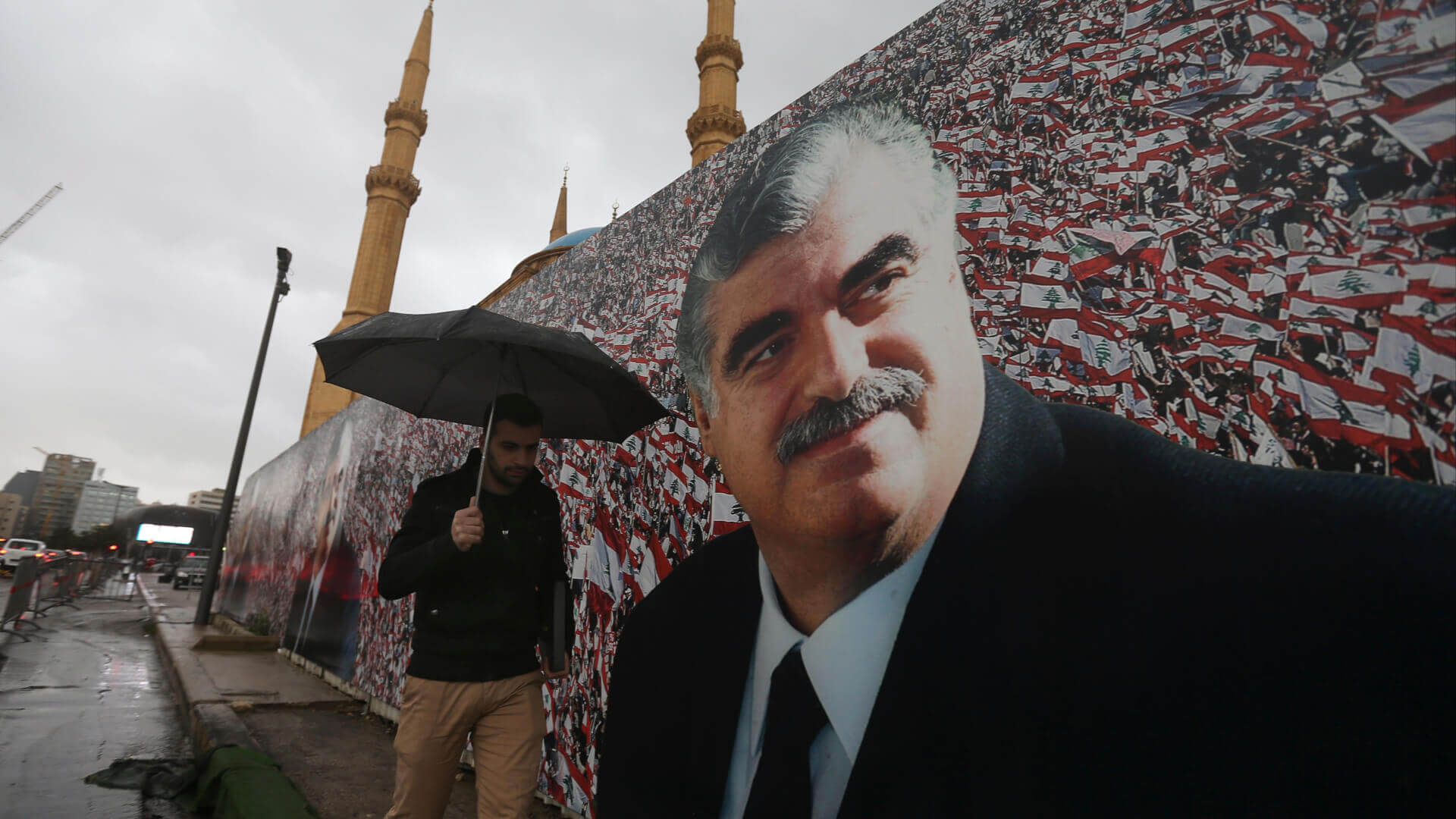On Tuesday, a United Nations-backed tribunal convicted a Hezbollah member on charges of conspiring to kill former Lebanese Prime Minister Rafik al-Hariri. Hariri was assassinated along with 21 others in a bombing in Beirut in 2005, in an event that shook the country’s political core and stirred the pot for confrontation between its elite political forces.
The Special Tribunal for Lebanon (STL), an international court set up near The Hague, delivered the verdict more than 15 years after the incident. The STL has been painted as a conspirator court by the Iran-backed pro-Syrian Shi’ite group Hezbollah, who has accused it of targeting them. And while on Tuesday the court said that it had not found any evidence that the leadership of Hezbollah was directly involved in the attack, the judges deemed the killing as a “politically motivated act of terrorism”. Reading from the 2,600-page ruling that took several hours to deliver, Presiding Judge David Re said that the bench had found the primary defendant, Salim Jamil Ayyash, who was tried in absentia, guilty on all charges. The verdict read: “Mr Ayyash had a central role in the execution of the attack and directly contributed to it.” Prosecutors established Ayyash’s ties with the Hezbollah.
Along with Ayyash, Hussein Oneissi, Assad Sabra, and Hassan Merhi were also accused of preparing the attack. However, none of the defendants have been found since investigations began by the UN a few weeks after the explosion, with Hezbollah chief Hassan Nasrallah proclaiming that they wouldn’t be found even in “300 years”. Initially, the prosecution’s case focused heavily on Syria’s involvement, with four top Syrian generals being held for four years until their release in 2009. Investigations were then turned to shine a light on the Hezbollah actors.
Hariri was a Sunni billionaire and maintained close ties with allies in the West and the Arab Gulf, leading efforts to rebuild the capital after the civil war between 1975 and 1990. The Iranian and Syrian influences in Lebanon, however, viewed him as a threat. His son Saad, who has also served as Prime Minister, reacted to the verdict: “I think today everybody’s expectation was much higher than what came out, but I believe the tribunal came out with a verdict that is satisfying and we accept it.” He also said that the time has come for the Hezbollah to now make some “sacrifices”.
The verdict comes at a crucial junction in Lebanon, whose people have been in the throes of a major political crisis, a deepening economic collapse, and the aftermath of a massive chemical explosion in the capital caused by administrative negligence. Several Beirut residents and families of victims have openly called for foreign investigations into the blast due to their lack of confidence in the government, but the country’s pro-Syria President Michel Aoun has sided with the Hezbollah in rejecting these calls.
Hilal Khashan, a political science professor from Beirut forecasts that “the verdict will add fuel to rising anti-Hezbollah sentiment in Lebanon... No one believes for a second that four unruly members of this highly disciplined group carried out this attack on their own accord”.
A spokesperson for the Israeli Foreign Ministry said in a statement: “The ruling of the tribunal that investigated the murder of Prime Minister Hariri and which was made public today is unequivocal. The Hezbollah terrorist group and its personnel were involved in the murder and in obstructing the investigation.”
UN Tribunal Delivers Hariri Verdict, Convicts Hezbollah Member
The verdict comes 15 years after the former Lebanese Prime Minister was killed
August 19, 2020

SOURCE: ITV HUB
